In the rapidly evolving landscape of technology, the glaring gender disparities persist as a reminder of the industry's challenges. Against this backdrop, our recent roundtable discussion for Women in Tech gathered a diverse group of influential women, each with a unique story and perspective. Their experiences, insights, and shared vision shed light on the complexities faced by female professionals in the field.
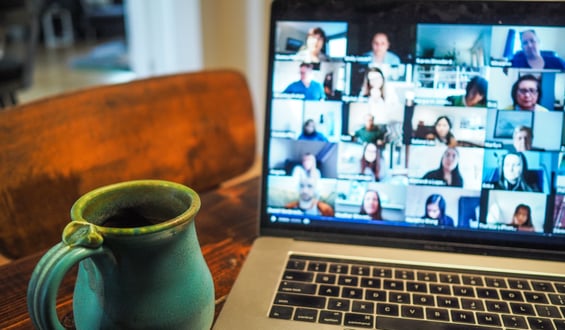
Coming all from different backgrounds, carrying diverse experiences and their own views of the world, these women came together to challenge and learn from each other, support one another, and illuminate with their stories the path toward a more equitable future for women in technology. Their shared insights on the challenges female professionals face in the industry highlighted the need for change, emphasising the importance of education, understanding, and empowering both men and women to foster a more inclusive and supportive tech environment.
Before delving into their empowering narratives, let’s meet these remarkable women.
Inspiring Women in Tech
In our recent Roundtable for Women in Tech, eight female professionals, hailing from diverse corners of the world, came together with a shared goal: to break barriers, challenge stereotypes, and foster inclusivity within the tech industry.
Although rooted in different cultures and experiences, this shared commitment unites them as they stand together as advocates for change. From the Netherlands to Sweden, from India to the UK, Romania and the US, their global perspectives enrich the discourse, highlighting the unique challenges faced in various corners of the world. Their stories, diverse yet intertwined, paint a vivid picture of empowerment, representing the countless women who navigate the intricate landscape of technology, often facing adversity but persisting, nonetheless.
Their narratives, as diverse as their backgrounds, stand testament to the transformative power of women in technology. Together, they embody the strength that comes from unity, demonstrating how collaboration and mutual support can pave the way for greater opportunities and representation for women in tech.
Addressing Gender Disparities: A Global Perspective
The glaring gender gap in the European tech sector looms large, acknowledged unanimously by the participants of our recent roundtable. In fact, statistics reveal that a mere 17% of IT specialists in Europe are women, underscoring a profound imbalance. Yet, this issue isn't confined to the European or Western sphere alone; it's a challenge resonating worldwide. By sharing their diverse experiences from various countries, the participants highlighted the cultural disparities in workplace gender equality.
The dialogue shed light on the staggering diversity in discrimination and biases based on geographic location. In some regions, biases remain deeply ingrained, posing barriers to inclusivity. “Tech is still a male-dominated environment,” says M, an experienced Innovation Manager and startup owner. Originally from Romania, M moved to Belgium ten years ago and traversed careers in Amsterdam, the US, and Singapore. Despite her diverse roles in different countries, her encounters with women in her field have been disappointingly scarce.
EK, originally from India and currently residing in France, reflects on her own experiences. During her extensive 15-year journey in the tech sector, she has also worked across various countries, including Singapore, Germany, the Netherlands, and India. According to her, in places like India and Singapore, gender discrimination in the tech industry is nearly non-existent. “In India and Singapore, women's discrimination is negligible. In Singapore, for instance, the percentage of females working in tech is higher than the percentage of men,” she says. “In the European Union, on the other hand, especially in countries like France, there is a noticeable gender inequality, even affecting wage disparities. This revelation was shocking because, in India, such disparity does not exist,” states EK, who strongly believes that nowadays, the world evaluates your talent, not your gender. “Regardless of your gender identity, if you possess talent, you are acknowledged for your work.”
However, R, a Change Manager from India with a 24-year tenure in the UK, offers a different perspective. Her experiences, shaped by work in South Africa, India, Rwanda, Houston, Paris, and beyond, highlight the complex interplay of race and gender biases. “It's fascinating how our experiences vary,” she says. “I faced rampant racism and sexism, not just in South Africa, where I grew up, but across different countries. It just depends on where in the world you find yourself. That’s why gender equality is a topic so close to my heart.” Reflecting on her interactions with colleagues in the UK, she remarks on the persisting biases in the workplace: “I'm working with a lot of Asian male colleagues, and I get spoken to as though I'm a non-existent human being. The same people wouldn’t even dare to speak to my other white female colleagues like that. So I don't believe that we're past that stage where people are just looked at based on their talent. Appearances still gauge our worth – be it colour or gender. However, this reality isn't uniform; it shifts based on the organisation, sector, and industry,” R observes.
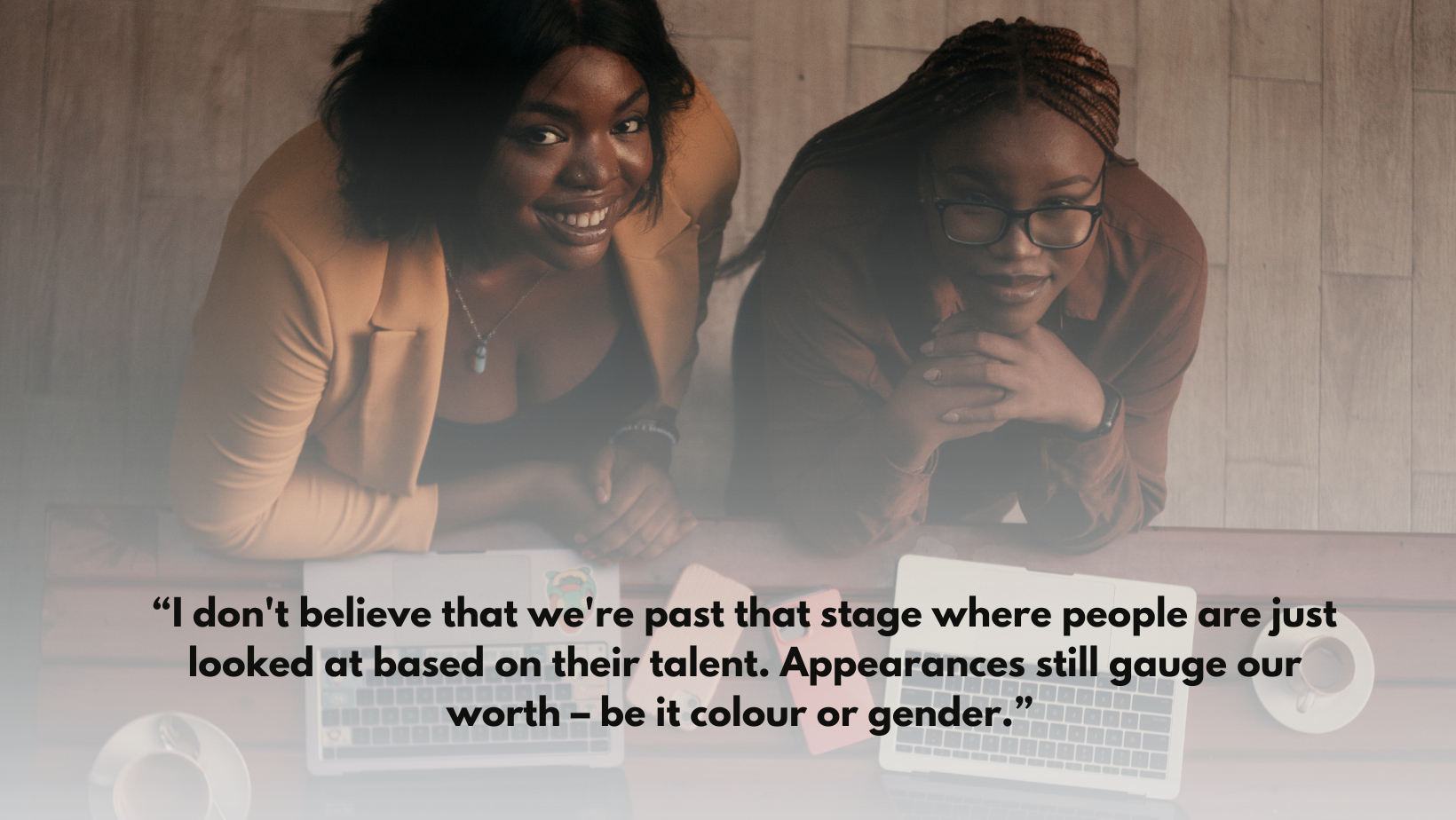
The level of discrimination and biases varies, and while all regions have biases, some are more overt and widely accepted. These stories serve as reminders that, while progress is made, there's still much ground to cover in the journey toward true equality.
However, the lack of women in tech is not solely a consequence of gender but rather a result of deep-rooted societal beliefs and biases that dictate what careers are suitable for women.
The Role of Education in Creating and Bridging Gender Gaps
A key theme that emerged from the discussion was the vital role of education in reshaping norms and breaking gender barriers. The participants stressed the need for an educational system that encourages children, regardless of gender, to explore diverse fields.
"I know it may sound cliché, but a lot of this starts with education," states M. "Parents' perceptions of their kids' education are fundamental. In my family, my brother and I were exposed to the same opportunities regardless of our gender. There was never a notion that my interests should be limited because of my gender. Children should have the freedom to explore everything and discover their true passions. Otherwise, they are confined to predefined roles.” In countries like Romania and other Eastern European countries, children are encouraged to embrace a wide array of experiences to unlock their full potential, she supports. “This approach stems from necessity; in the face of limited resources and opportunities, exposing children to diverse fields becomes crucial. This exposure empowers them to break free from restrictive norms, ensuring their potential isn't curtailed."
In contrast, M recalls an encounter during her time in the Netherlands that highlights prevailing biases in the Western world. “A few years back, I had a colleague driven by a strong masculine energy. I remember him strongly supporting that he was not going to let his daughter go after careers in tech or sciences and that paths like psychology were more suitable for her. Unfortunately, he wasn’t the only one embracing similar beliefs, confining their daughters' choices based on outdated stereotypes.”
This phenomenon raises important questions about the influence of societal perceptions not only on parental attitudes but also on gender misconceptions. According to M, “The paradox lies in the disparity between the domestic and professional personas of women. At home, a woman often has the role of the leader, making vital decisions for the whole family. Yet, when she steps into the outside world, it’s like she forgets she has all these traits, conforming to societal expectations. This transformation showcases the societal pressure imposed upon women, expecting them to embody specific attributes.”
Sharing similar sentiments, Caroline, Head of the Netherlands at Templeton, delves deeper into the root causes of gender misconceptions. "A major problem lies in our perception of men," she explains. "Men are also conditioned by societal expectations, and their harsh exterior often conceals insecurities. We need to empathise with men from a female perspective and acknowledge their vulnerability. We perpetuate these stereotypes by not accepting their softer side. We need to meet them in the middle to create a more balanced and compassionate society."
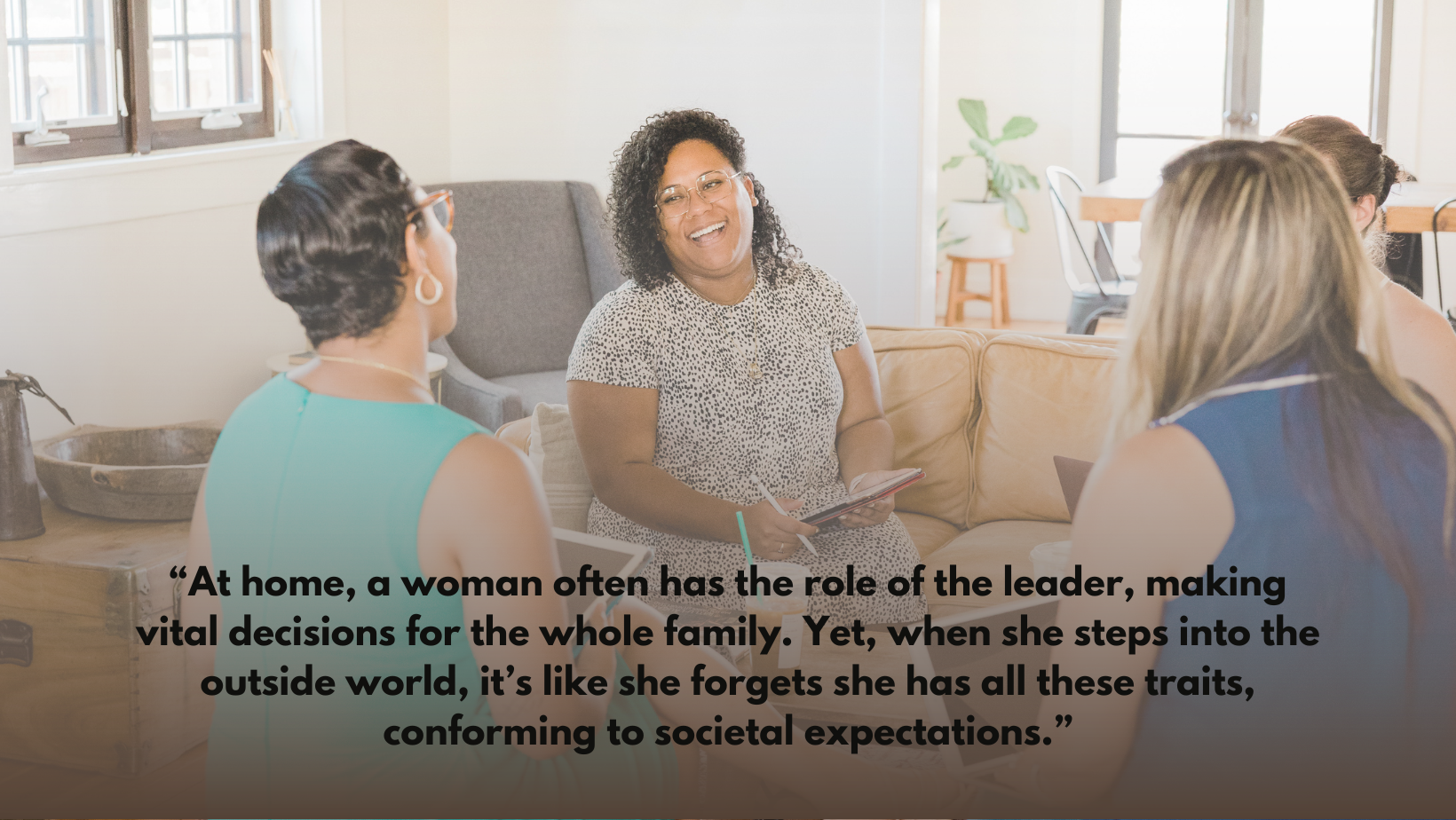
Empowering Women in Tech – Insights from PMO Expert Renel Holland
Challenges Faced by Women in Tech
Throughout the conversation, the women shared personal stories, shedding light on the challenges they face in their everyday work lives. These challenges, ranging from lack of recognition and unequal treatment to instances of racism and sexism, are unfortunately all too familiar to women in the tech industry. In these situations, their voices often get drowned out, and their accomplishments go unnoticed.
CH, a seasoned Project Manager from India currently working remotely for a Netherlands-based company, expressed her frustration: “As women, we handle immense work and pressure, yet our contributions are not acknowledged as much as men’s,” she explained. “I've faced this numerous times. I've generated almost 100k euros of revenue, but I'm still considered a junior project associate. Meanwhile, my male co-worker, who doesn't perform as well, receives all the credit. I'm constantly striving to be noticed, pouring all my effort, energy, and knowledge into my job.”
“Many women can see themselves in what you're saying,” empathised Caroline, acknowledging that CH's experience resonates with many women. E, a Transformational Coach from Sweden with over 20 years of IT experience, underscored the widespread nature of Ch.'s feelings within the sector. “This situation is, unfortunately, quite typical,” she says. “Many of us have been there. Working with men can offer insights into their world, allowing us to educate them about effective communication with women. But it's disheartening when, despite our hard work and excellent results, we aren't recognised properly. Perhaps it's time for a different approach – focusing on building visibility, confidence, personal branding, and assertive communication skills. We need to showcase our talents more effectively, ensuring our contributions are acknowledged.”
R, drawing from her own experiences, shared her perspective. “I've been in environments where women were talked down and treated poorly, to a point where it's just so uncomfortable,” she recalls. “In such situations, we're expected to endure without speaking up, unlike in other social contexts where such behaviour wouldn't be tolerated. In my previous workplace, there was a manager who constantly targeted me. Some days, it felt like I couldn't even breathe. Eventually, he crossed a line, and I had enough. I reached out to senior management, explaining all I had to endure. Eventually, I had to resort to documenting every incident—date, time, words spoken, and witnesses present. It's unfortunate that we have to resort to such measures, but we need to protect ourselves somehow. The world isn't as straightforward as we may think. In fact, I've experienced more racism and sexism lately than ever before, including an incident where a male colleague tried to kiss me during a night out. When I confronted him, he dismissed it by saying, 'Well, you're an Indian woman, and Indian women don't socialise with male colleagues unless they're interested.' These misconceptions persist, but I don't think our skin colour is an indication of anything," says R.

The Pandemic's Impact on Gender Disparities
The feeling that gender disparities in the workplace have worsened in recent years is not just a shared sentiment among the roundtable participants; it's a reality supported by research. A study by the Institute for Health Metrics and Evaluation at the University of Washington revealed that the Covid-19 pandemic threatened to undo decades of progress in gender equality. The pandemic's indirect social and economic impacts hit women harder than men. Employment and uncompensated labour showed the most significant gender gap, with 26% of women reporting job loss compared to 20% of men globally in September 2021. Women were also more likely to leave school early and report an increase in gender-based violence than men.
“Since the pandemic, when people started working from home, it's easier to treat others badly. On social media, that’s even more obvious. Hate, racism, violence, and sexism are spewed by random people. It's like a switch flipped, and now it's suddenly acceptable to be nasty. In my interactions over the last three years, this negativity has become more prevalent,” says R.
E, who also noticed this shift, believes that the pandemic brought existing issues and biases to the forefront. “The pandemic made people confront themselves. They weren't used to introspection, and their mental health suffered globally. Maybe people didn't become ruder, but they couldn’t handle themselves and the situation. Self-awareness is lacking, soft skills are undeveloped, and, especially in the tech world, it's not easy to seek support for building soft skills like resilience or confidence. People often can't manage their stress in such environments. Unfortunately, treating others poorly is becoming normalised, and it's a self-perpetuating trend. We need to support each other in becoming more humane. We have to listen and be kinder.”
The importance of kindness was also emphasised by other participants, as well as the need for strong leadership in times of crisis. Caroline agrees, stating, “We need to be kinder to ourselves. All these issues go beyond gender or race; they affect the world broadly. The world is becoming a scary place where people are arguing just for the sake of it, especially on social media, where bashing each other has become commonplace. The world has become harsh, but if we are kinder to ourselves and maintain high standards for ourselves, we can hopefully change this trend.”
Managing this “trend” was especially challenging in workplace environments due to remote work and online communication. Many industries were unprepared for this new reality, making the adaptation to remote work and policy implementation difficult. “Finding solutions promptly was tough, even with all the experience in the world,” Caroline reflects.
“This is where diverse people in leadership positions become crucial. Leaders are the ones shaping the team's culture,” E adds. “Nowadays, technology is often prioritised over the human aspect. Many technology leaders are young, and technically skilled but lack essential leadership skills. Leadership should be entrusted to mature, experienced, and diverse individuals. The transition to remote work during the pandemic lacked clear guidelines. Leaders need to provide principles and rules for this new way of working. Leadership shows the way forward, guiding people and setting the norms.”
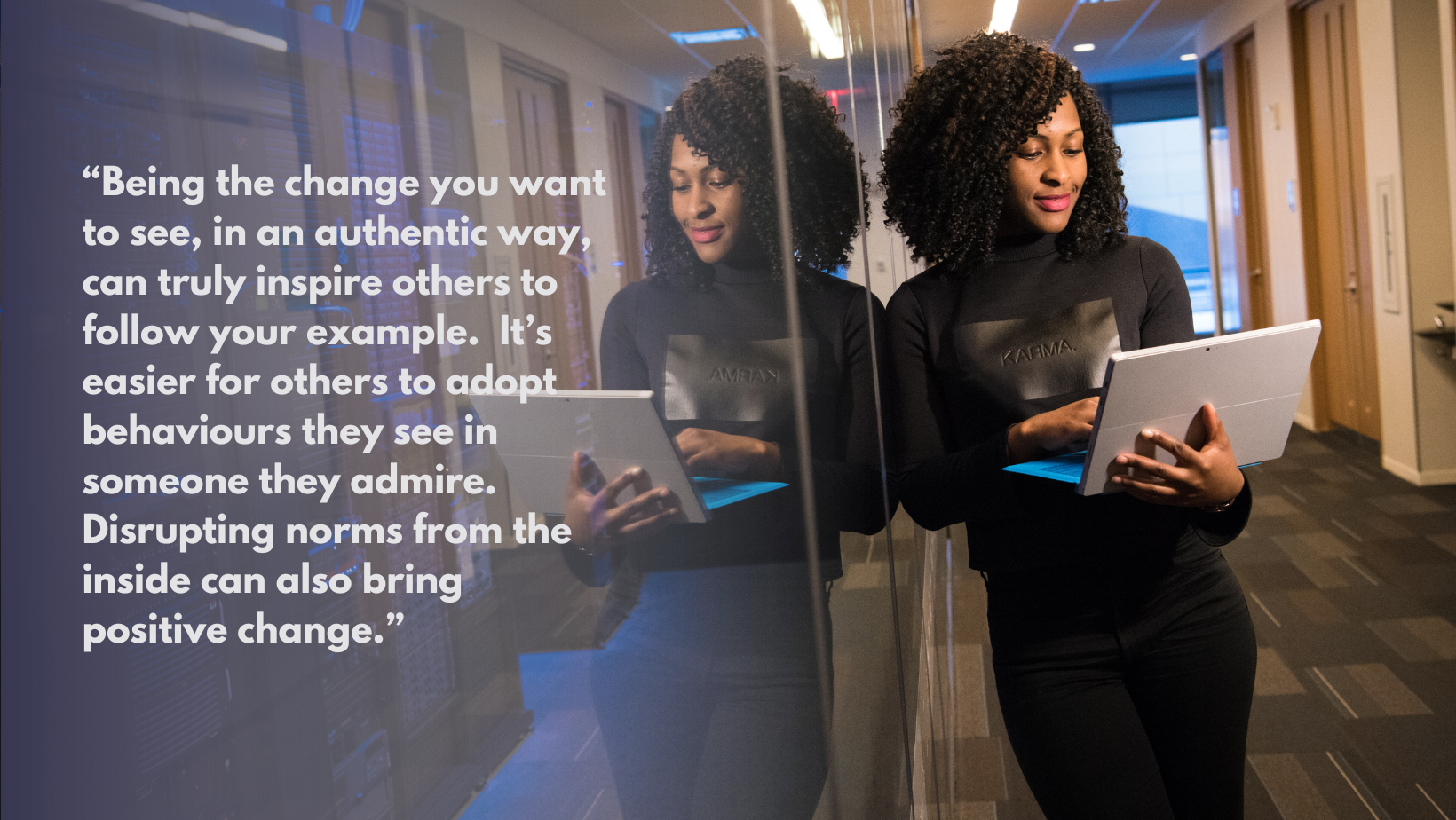
Navigating Workplace Challenges – The Power of Allyship
In the tech world, building a truly diverse and inclusive culture remains a challenge for many businesses. Women and other underrepresented groups often find themselves crafting their own solutions to workplace hurdles. From our discussion, the importance of allyship emerged as a pivotal factor, underscoring the need for both men and women to support and uplift each other in professional settings.
“We face many issues in our everyday working life, but we can't just talk about problems; sometimes we need to create our own solutions,” says CH, advocating a more proactive approach. “As a project manager, I often felt overlooked and unheard. So, I came up with a few strategies to encourage open communication within my team. We started having weekly sessions sharing our challenges, to empathise and understand each other better. I strongly believe in being proactive and driving change ourselves, rather than waiting for others to do it for us. These efforts didn't just impact my team, but the entire organisation. While change might not happen overnight, if we always try our best and have a problem-solving approach in work and life, we will eventually create a meaningful shift."
R emphasised the vital importance of allyship, especially in vulnerable situations. “Early in my career, I didn't spend any time thinking about any of these issues. However, throughout the years, I came across some very difficult scenarios linked to my gender or race, and I couldn’t ignore these challenges anymore. In such situations, we have two choices: either endure silently, perpetuating the pain for those who follow or stand up for ourselves. However, speaking up can be tough, especially in vulnerable situations. That’s why having allies is crucial; they help bridge the gap. We need to stay united, support each other and stop undermining one another. We don’t move forward by putting someone else down.”
Mentorship, too, plays a crucial role. EK stressed the challenge women face in networking and visibility, urging women to seek female mentors: “We must learn how to bypass gender challenges, showcasing our skills effectively. A female mentor can show us a better and smarter way to navigate complex professional terrains.” However, in more specialised fields like AI, machine learning, or VR, it is not always easy to find role models or the support you need, and the general scarcity of women leaders in tech amplifies the struggle. Particularly in those areas, creating a supportive community around you is key. “We need more spaces like this, where we can discuss our challenges openly and uplift one another,” emphasises O, an expert in digital marketing and big tech.
E, a transformational coach for female leaders, outlined her dual approach to supporting women: leading by example and causing disruption from within. “Being the change you want to see, in an authentic way, can truly inspire others to follow your example. It’s easier for others to adopt behaviours they see in someone they admire. Disrupting norms from the inside can also bring positive change. Usually, I try participating in men-dominated events. There, I have more impact and more opportunities to support women from the other side. By addressing men directly about the challenges we face in our field, we help them understand our side better. I find that this approach encourages them to reflect on their interactions with female colleagues, inspiring them to bridge gaps and create a more supportive work environment.”
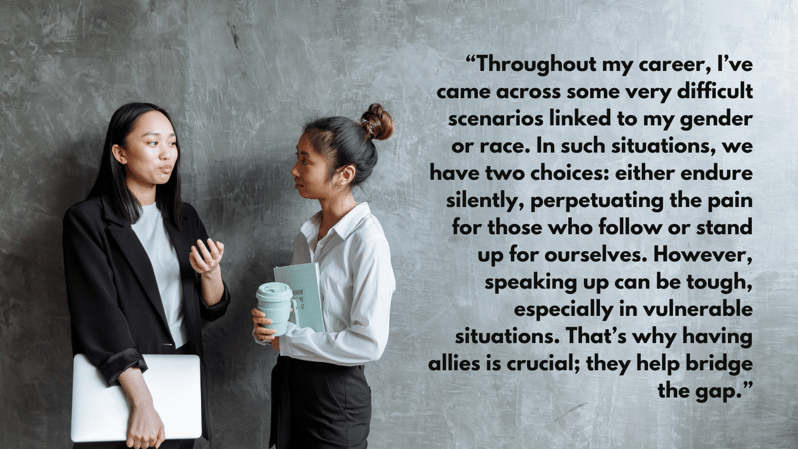
Reframing Narratives: Placing Similarities Over Differences
While allyship, self-improvement, and self-driven solutions are essential for creating some waves of change, true progress towards inclusivity comes from challenging existing narratives and nurturing empathy. The roundtable participants collectively acknowledged the importance of viewing each other as equals and promoting stories that highlight similarities rather than differences.
E voiced a perspective rooted in balance and harmony. “Our world is diverse, and we are all different in some ways, with our own unique skills and strengths. I don’t believe the world would be a healthier or happier place to live in if there was a shift of power from one gender to another. We need more balance and harmony, and to achieve that, we need to embrace our differences with humility and empathy. It's not just about gender, race, or origins – it's about recognising talent, genuine efforts, and the positive energy we bring to our shared spaces. Unpleasant behaviours, including aggression, stem from misunderstandings, and can equally come from both men and women. We are all human, and we are allowed to be wrong sometimes. But if we are kind and able to forgive ourselves and others for these mistakes, maybe we can find a way to reconnect with each other and move forward in a stronger, more impactful way.”
“We shouldn't jump to conclusions; Perceptions can often get clouded also by cultural differences and communication styles we might not be familiar with," says M, drawing from her personal experience. “Coming from Belgium, where everyone is extremely polite, to the Netherlands, where everyone is so blunt, was quite a shock to me. I found myself in meetings where everyone was screaming, and my initial reaction was to interpret it as a personal attack, because of my gender or age. But when I took a step back, I realised that it was just my defence mechanism. Sometimes, what we perceive as personal criticism could simply be a cultural difference, and nothing more.”
“Rather than dwelling on differences, we should emphasise our similarities,” supports E, highlighting the need to rekindle our ability to connect. “We all have our bad days, unique experiences, fears, unconscious biases, false beliefs, and misconceptions. Sometimes, these factors can lead us to view each other as enemies and opponents. The stories we often hear paint men in tech as bad, unfair and dominating, and women as the passive victims. These narratives oversimplify a complex reality. Yes, there are fewer women in tech, but this varies by country, company, and specific IT field. The industry is vast, with different areas showing different gender ratios. Ultimately, bridging this gap requires mutual education, collective growth, and equal exchange. To achieve this, we need to stop fuelling the stories that show how different we are and start embracing the ones that focus on our similarities and equality."
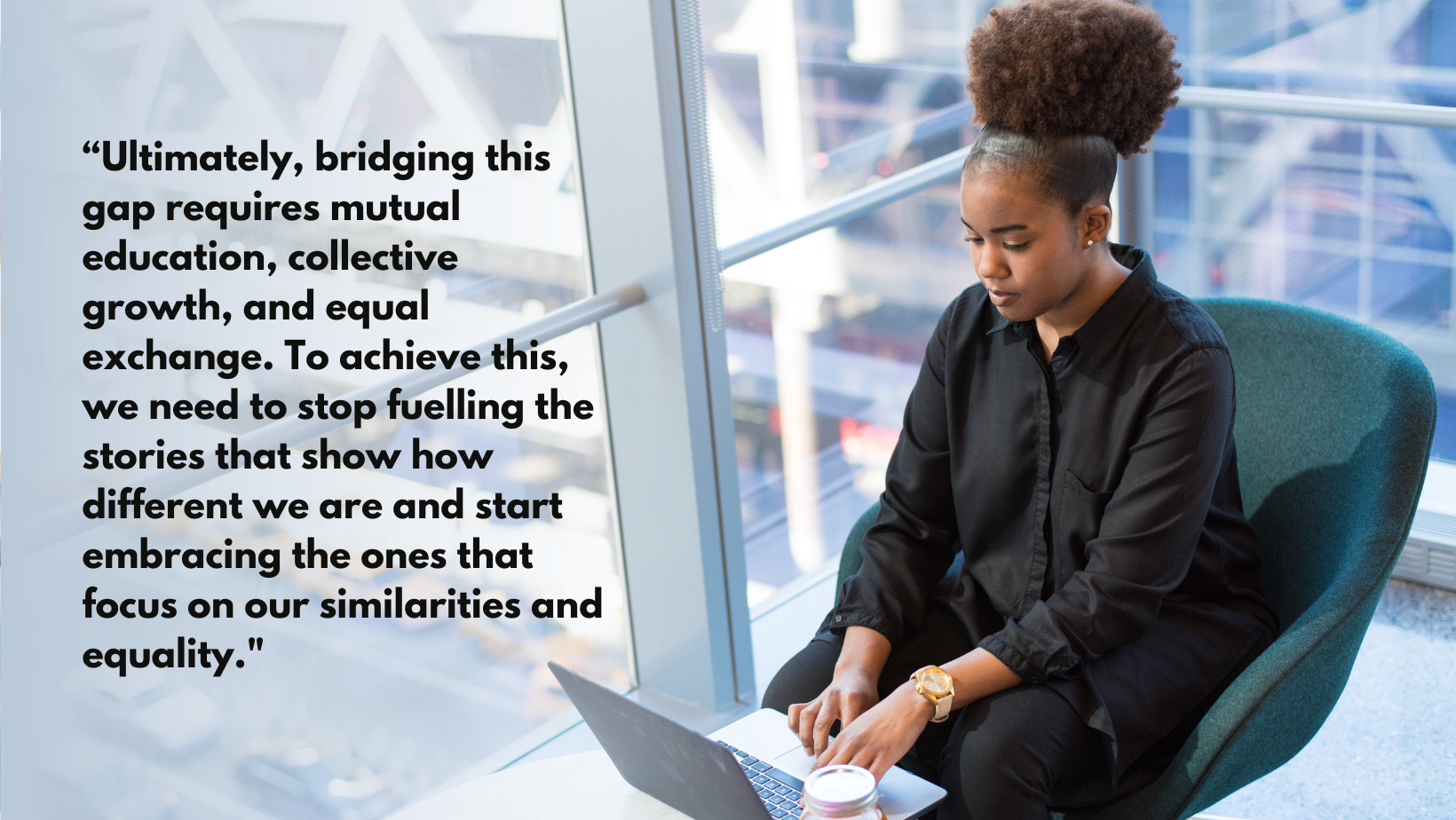
Moving Forward Together
The roundtable discussion shed light on the complexities of gender disparities in the tech industry. By fostering a culture of understanding, education, and allyship, the participants agreed that it is possible to empower women in tech and create a more equitable future for all. The event concluded on a hopeful note, with the participants committed to being the change they wish to see and inspiring others to do the same.
Our Diverse and Inclusive Approach to Recruitment
Templeton has over 27 years of experience recruiting highly skilled and diverse IT contractors across the world – Find out more about our award-winning tech recruitment services.
Are you looking for a role in IT?
We provide contract tech jobs in 40 countries worldwide, and our diverse, international team is on a mission to find the right one for you. Get in touch with us today!
You might also be interested in - Women in IT (Part 1): Climbing the Ladder of Success




